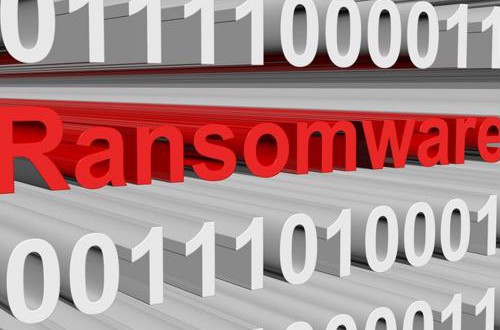There are few cyberattacks as frightening as ransomware. This particular hack is where a criminal gains control over a machine or network and basically blocks the user from accessing important information. The idea is that your data is so important that you'll pay whatever price it takes to quickly regain it.
It's a pretty sinister way to make money, but it's a booming business. While these attacks vary in terms of severity, they can be incredibly detrimental. A single ransomware venture targeting the UK's National Health Service led to the loss of nearly £100 million, according to ZDNet.
Losses like that are certainly terrifying, but that doesn't mean decision makers should cower in fear. The only way to effectively fight the risk of ransomware is to understand more about it. On that note, let's discus a few things about ransomware that you should know.
1. Customers are wary of doing business with victims
If you ever happen to fall victim to a ransomware attack, you can at least take comfort in the fact that they aren't uncommon. According to the FBI's Internet Crime Report, the agency received 1,783 reports of such incidents in 2017.
While that's a high number on its own, its important to remember that this is the kind of crime that is heavily underreported. When a company is attacked by ransomware, there is a very real fear that the public will view the organization as weakly defended if the news were to get out. According to KPMG, 58 percent of respondents stated that a breach at a particular company would discourage them from doing future business with that organization. What's more, 86 percent of procurement managers said they would remove a supplier from their contact list if it were to be hit by a cyberattack.
This is all to say that there's a lot on the line when it comes to ransomware, Therefore, managers simply don't have the luxury to avoid improving their cybersecurity systems.
2. It can affect your entire network
Another important aspect of ransomware attacks is that they're completely adjustable to the kind of organization a hacker is targeting. While ransomware attacks have been known to affect a single computer, some of the most terrifying ones had to do with an entire network going down.
Take, for instance, the attack that befell Hollywood Presbyterian Medical Center. This hospital was hit by a ransomware attack that was so severe that staff had to resort to pen and paper in order to keep records, the Los Angeles Times reported. While patient care wasn't affected, the hospital's need for digital systems eventually forced the organization to pay the hackers a $17,000 ransom.
3. Just about anyone can implement a ransomware attack
Most people imagine hackers as computer geniuses who are able to bend digital systems to their will. While that's certainly true for many cybercriminals, it's certainly not the case for all of them. It is incredibly easy to find certain pieces of malware on the Dark Web, which means that just about anyone with an internet connection can buy ransomware.
This process is called Ransomware-as-a-Service, and, as Tripwire explained, it's incredibly devious. It begins with someone who actually knows a lot about hacking and coding. This individual creates a piece of ransomware and puts it for sale on the Dark Web. The purchaser can either pay an upfront fee, or can rent the software. The original author of the code also sometimes asks for a percentage of the ransoms the purchaser receives. This simplified process enormously increases the number of people who are able to hack your organization.

5. You should never pay
Sadly, even if you take multiple precautions, all it takes is a single employee clicking the wrong link for your entire network to become compromised. If you ever happen to find yourself in that situation, understand that there is absolutely no reason for you to pay up. In fact, the FBI even discourages giving the attacker a ransom.
To begin, you're really only encouraging the person who has victimized you. What's more, you're endangering other companies by showing the cybercriminal that this is an easy way to make money.
On top of that, there's really no incentive for the attacker to actually unlock your network. They've already received payment, and they've shown you that they're a bad person by attacking you in the first place. What's more, they could just keep charging your more and more until you give up and go to the authorities. It may be rough, but calling the police to begin with is always the right move.
One of the most common attack vectors available to ransomware hackers is the Java applet plug-in for a web browser. This is why organizations using Java Terminal Emulators like IBM/Rational Host-On-Demand or MicroFocus Reflections for the Web are particularly vulnerable. The Inventu Corporation offers the industries best alternative to a Java Terminal Emulator – Inventu Flynet Viewer—Read More Here.

